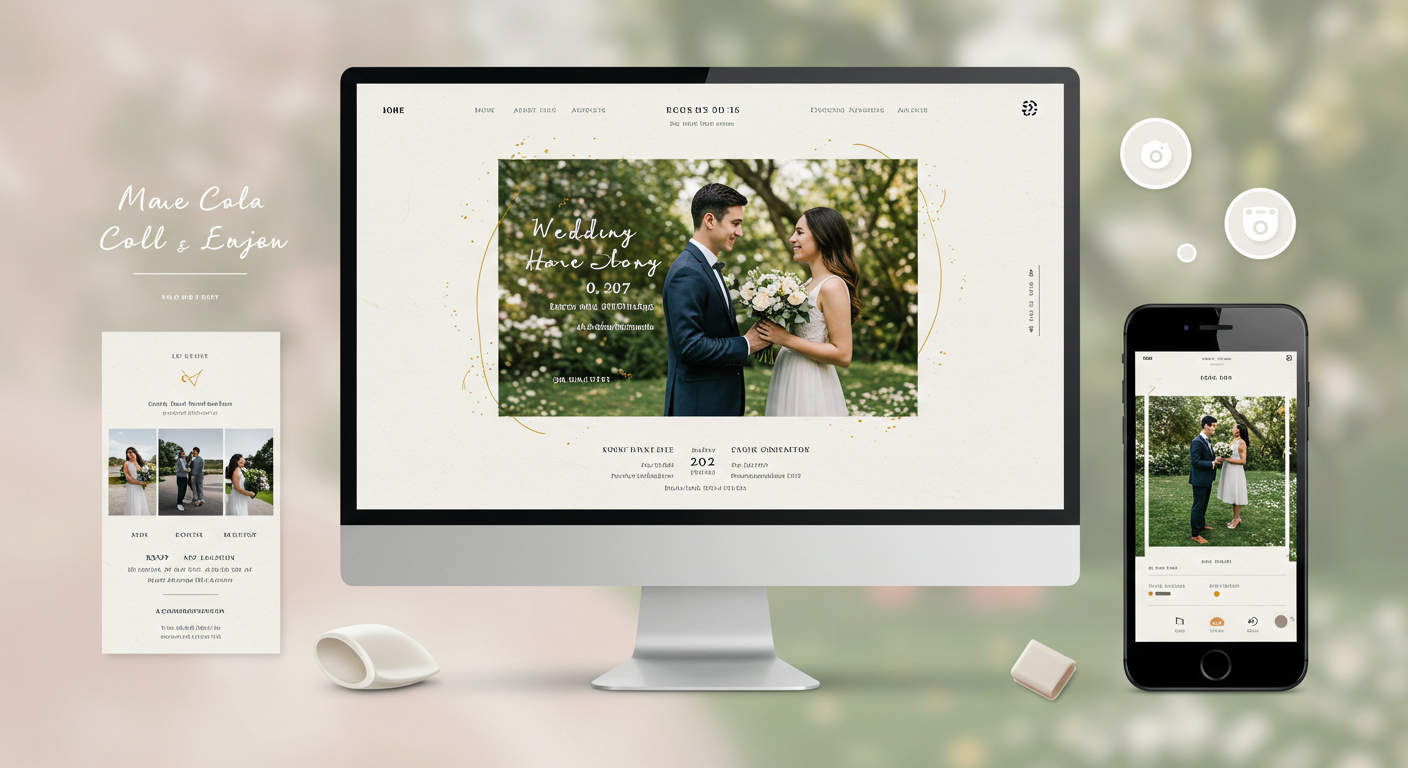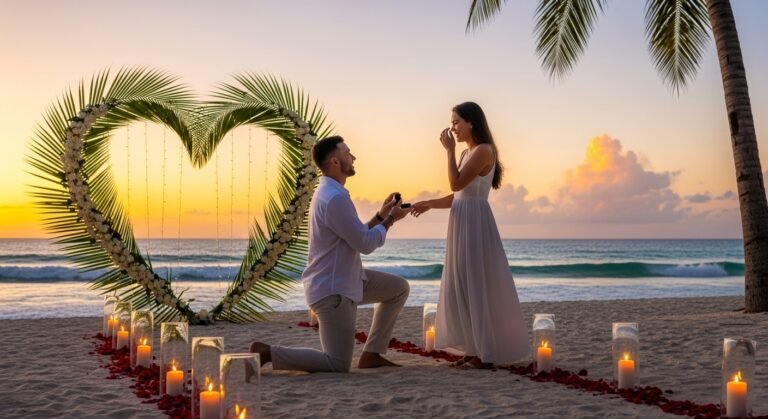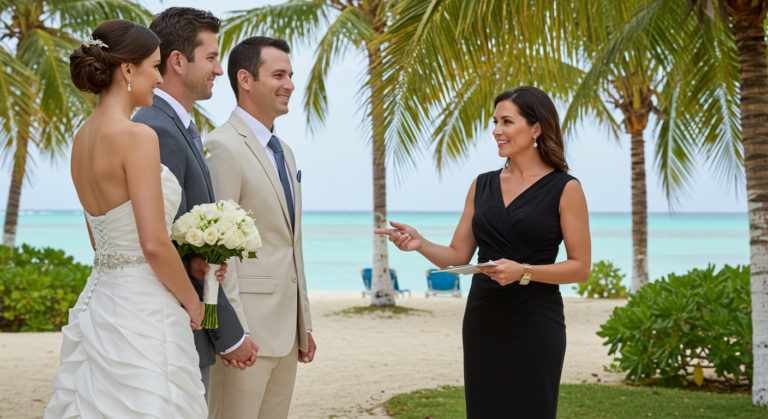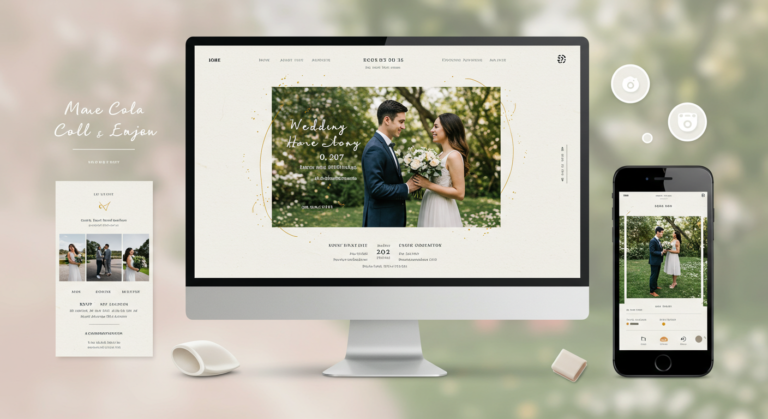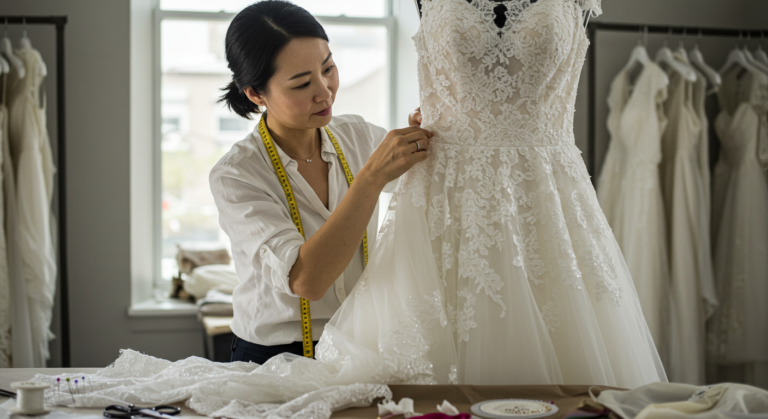Your wedding website is a treasure trove of personal information. It holds the date and location of your event, the names of your loved ones, and often, intimate details of your relationship. While you’re eager to share these details with your invited guests, the last thing you want is for that information to fall into the hands of strangers, random web crawlers, or even an overly enthusiastic acquaintance who wasn’t on the guest list.
In the digital age, taking proactive steps to protect your online information is not just prudent—it’s essential. Your wedding details deserve the same level of care and discretion as your physical invitation. Fortunately, modern wedding website builders offer robust tools to help you control your digital guest list. Learning how to keep your wedding website private and secure is a simple yet critical part of your planning process, ensuring your celebration remains an exclusive event for the people you love and trust.
Why Wedding Website Privacy Matters
The concerns go beyond just an unwanted party crasher. A publicly accessible website can lead to several issues:
- Safety and Security: Broadcasting the exact time and location of a large event where gifts might be present can be a security risk.
- Preventing “Plus-One” Confusion: A public link can easily be shared, leading to uninvited guests assuming they can attend.
- Protecting Personal Information: Your website likely includes photos and personal stories you may not want to be publicly indexed by search engines like Google.
- Managing Guest Expectations: It ensures that only those who have received a formal invitation have access to the details, preventing feelings of exclusion or confusion among broader social circles.
How to Lock Down Your Wedding Website: A Step-by-Step Guide
Securing your site is surprisingly easy. Here’s how to implement essential privacy controls.
1. Password Protection: Your First Line of Defense
This is the most effective and common way to control access.
- How to Enable It: In your website builder’s settings (look for “Privacy,” “Settings,” or “Site Visibility”), you will find an option to add a password. This creates a single password that all guests will use to view your site.
- Creating a Strong Password: Choose a password that is easy for your guests to remember but difficult for others to guess. Avoid using “password123” or your wedding date. A good strategy is to use a short phrase related to you as a couple that your guests would know, like “EmmaLovesDogs2024” or “DanSalsaDancing.”
- Communicating the Password: Share the password exclusively through your formal wedding stationery—on your save-the-dates, invitations, or a separate details card. Do not post it on social media.
2. Search Engine Blocking: Stay Off Google’s Radar
Even with a password, you may not want your website to be discoverable via a search engine.
- How it Works: In your site settings, there is almost always a checkbox for something like “Hide from search engines” or “Block search engine indexing.” When enabled, this adds a piece of code that tells Google and other search engines not to list your site in their results.
- Why it’s Important: This prevents someone from simply Googling your names and finding your wedding website, even if they can’t get past the password page without the code.
3. Customize Your Web Address (URL)
Most platforms offer a free, standard web address that includes the platform’s name (e.g., theknot.com/us/john-and-jane-2024). You can usually customize the last part.
- How it Helps: Creating a custom URL like
www.ourwedding.com/john-and-janemakes it easier for your guests to remember and type in directly. More importantly, a unique web address is harder for outsiders to guess randomly than a common, formulaic one.
4. Be Strategic with Information Sharing
Think critically about what information is necessary to put online.
- Specifics on Rehearsal Dinner: Consider sharing details for more intimate events, like the rehearsal dinner, only with those who are invited, perhaps via a separate email. This avoids any potential awkwardness for other wedding guests who see it on the site but aren’t included.
- Registry Discretion: While your registry page is important, you can frame it gracefully: “For our guests who have asked, we’ve registered at the following places…” This maintains a tone of graciousness rather than expectation.
Best Practices for Maintaining Privacy
Implementing the settings is half the battle; maintaining discretion is the other.
- Communicate Clearly with Guests: On your invitation, you might include a note: “For event details and RSVP, please visit our website at [URL]. The password is [Password].” This clearly signals that the site is private.
- Ask Guests to Be Discreet: In a gentle note on the website itself, you can ask guests not to share the link or password publicly. Most will understand and respect this request.
- Review Your Settings Periodically: When you first set up your site, you might have been focused on design. Before you send out invitations, double-check that all privacy settings are activated correctly.
- Test the Experience: Ask a friend or family member who isn’t deeply involved in the planning to test the process. Can they find the site? Does the password work? Is the experience smooth? This helps you identify any hiccups before your guests do.
Taking these steps to protect your wedding website is a modern courtesy that safeguards your peace of mind. It allows you to share freely and openly with your actual guests while creating a clear boundary for the outside world. By investing a few minutes in your privacy settings, you ensure that your website remains a secure, joyful, and exclusive portal to your celebration, just as you intended.
